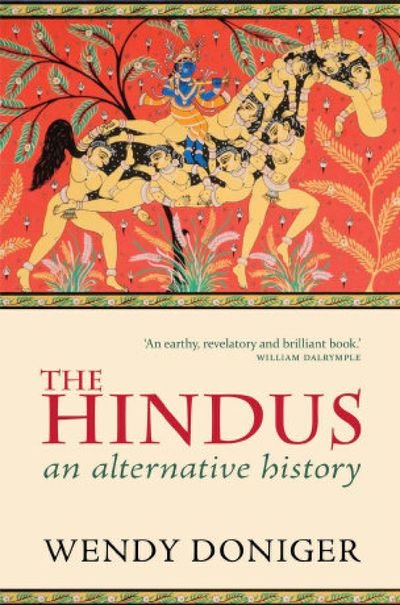Why Free Speech Loses in India by Jonathan Shainin (The New Yorker (blog))
“This week the picture [of civil rights in India] dimmed a little further, with the news that ‘The Hindus: An Alternative History,’ an eight-hundred-page book by Wendy Doniger, an eminent professor of religion at the University of Chicago, would be removed from Indian book shops. Penguin Books India, which first published the book, in 2009, signed an out-of-court settlement with an advocacy group, the Shiksha Bachao Andolan Samiti (‘Movement to Save Education’), who claim to be defending ‘the sentiments of Hindus all over the world.’ The group had filed a civil suit and multiple criminal complaints against Doniger and her publisher; under the terms of the agreement, which includes a bizarre clause requiring Penguin to affirm ‘that it respects all religions worldwide,’ the publisher will cease to sell ‘The Hindus’ in India, and pulp its remaining inventory.
“The original legal notice in the case, sent to Penguin in 2010, alleged that the book ‘is a shallow, distorted, and non-serious presentation of Hinduism … written with a Christian Missionary Zeal and hidden agenda to denigrate Hindus and show their religion in a poor light … The intent is clearly to ridicule, humiliate, and defame the Hindus and denigrate the Hindu traditions.’ Citing a passage in which Doniger refers to Sanskrit texts written ‘at a time of glorious sexual openness and insight,’ the complaint declares that her ‘approach is of a woman hungry of sex.’
“Conservative Hindu groups have been campaigning against Doniger for more than a decade, contending that she misunderstands and deliberately misrepresents Hindu texts and practices, insults Hindu gods in her readings of myth, and crudely focusses, through a psychoanalytic lens and above all else, on sex. [...]
“Assigning blame for this deplorable state of affairs, as with so much else in India, is an exhausting exercise in circularity. In Doniger’s case, it would seem reasonable to start with the man who filed the suit, Dinanath Batra, who has waged a series of legal battles to cleanse Indian textbooks of what he deems ‘objectionable passages.’ But Batra, who is associated with the family of Hindu nationalist organizations connected to the Rashtriya Swayamsevak Sangh (R.S.S.), has many defenders, who maintain that he has simply sought recourse to which he is entitled by Indian law. (This defense has frequently been accompanied by the disingenuous claim that free speech is not at issue in this case, because the settlement was a voluntary one.)
“So perhaps the law is to blame? This was the crux of Doniger’s own statement, released on Tuesday: the ‘true villain,’ she wrote, was the section of the Indian Penal Code that criminalizes, in its words, ‘deliberate and malicious acts intended to outrage religious feelings of any class.’ [...]
“On Friday, Penguin India finally released a statement, which suggested that the relevant Indian law ‘will make it increasingly difficult for any Indian publisher to uphold international standards of free expression.’ This may be true, but it is a claim that should have been tested by seeing the case through to its conclusion.
“In the absence of further clarification from Penguin, we are left with the dispiriting sight of the world’s largest trade publisher—the recently merged Penguin Random House—surrendering to a spurious legal threat from a minor advocacy group. Seen from this perspective, it seems certain that the decision to withdraw the book was not made in Delhi. It is all too easy to imagine that Bertelsmann and Pearson, the European conglomerates that share ownership of the company, concluded that a long legal struggle to defend free speech in India was not worth even a minor cost to the bottom line.”
See also on anti-caste:
PREMIER INDIAN UNIVERSITY ALTERS CURRICULUM UNDER PRESSURE FROM HINDU-RIGHT BIGOTS (October 15, 2011)
and
INDIAN GOVERNMENT, EXPLOITING REACTIONARY HYSTERIA WHIPPED UP BY MUSLIM CLERICS, WOULD NOT PROTECT RUSHDIE AT JAIPUR FESTIVAL (January 14, 2012)


Comments